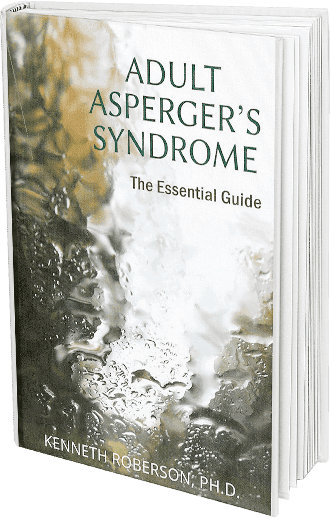
The secret to change is to focus all of your energy, not on fighting the old but on building the new.
Socrates
If you change nothing, nothing will change.
Tony Robbins
Having a meaningful and successful relationship with an adult who has Autism Spectrum Disorder (ASD) is not easy, but it is possible. What is required is for both parties to take specific steps that create change in the relationship, change that allows it to succeed.
Here is a list of those steps. These may not necessarily fit the particular circumstances of your relationship, nor will they guarantee change. They do, however, embody the principles that are essential, in my opinion, to improving a relationship that is challenged by the presence of Autism Spectrum Disorder.
- Sharing your concerns: Successful relationships require open, honest communication. If you suspect your partner has Autism Spectrum Disorder, say so. You may worry that speaking up will provoke a negative reaction but the costs of keeping your concerns to yourself very likely outweigh the costs of letting them be known. Yes, it may hurt the other person’s feelings. Yes, it may evoke anger, suspicion, fear or other difficult reactions. But how can your relationship succeed if you can’t be honest? And how can your husband, wife, friend, colleague or loved one change a problem if he or she doesn’t know it exists?
- Acceptance of the diagnosis: You and your partner must work on accepting the presence of ASD, assuming that is the correct diagnosis. Admitting and accepting a diagnosis is typically hard, for both parties for different reasons, but change can’t happen if the problem is not real. Whether between the two of you or with the help of others, there must be a discussion of what it means to have ASD and what impact it has on your relationship.
- Be specific: You must be clear with your partner what you want to be changed. It’s one thing to say someone has Autism Spectrum Disorder but quite another to describe the specific things he or she does that interfere with your relationship. You must focus on the later more than the former. Don’t say, “your problem is you have Autism.” Instead, focus on the specifics of the problematic behavior. One can’t necessarily change having Autism but one can change behavior.
- Take small steps: Focus on one problem at a time. Whether it be a communication problem, difficulty socializing, spending more time on fixed, repetitive interests than being with you, or some other difficulty, your partner will have a much easier time addressing that problem itself than focusing on a number of problems altogether.
- Seek support: Both of you need support to change. Neither of you can do it alone, nor through the efforts of only each other. Change depends upon help from many different sources, such as friends, colleagues, family members, and others with Autism Spectrum Disorder. Seek these resources out and try not to feel ashamed to ask for help.
- Committing to change: Commitment is essential to success in most endeavors, and this is certainly true of Autism Spectrum Disorder relationships. If you are threatening to walk away from the challenge, it probably isn’t going to work. True, there are circumstances in which leaving is the right thing to do, but do so only when you have first committed yourself to staying. Then, if those circumstances occur and you’ve tried everything you can to make it work, consider moving on.
- Respite: Sometimes people need to be apart in order to be together. This is, even more, the case in an Autism Spectrum Disorder relationship where the challenges of this condition create unusual friction and stress. Be sure to take time for yourself. Be with other people. Engage in outside interests. Do things on your own. Focus on assuring yourself that having a life of your own is best for your relationship. Guilt about wanting a respite from the challenge you are dealing with does you or your partner little good.
- Therapy: Your partner may need professional help with the challenges of Autism Spectrum Disorder. You may as well. And help for your relationship could be the key to your success together. Yes, it’s costly, financially and time-wise but as is often said, happiness is priceless. Learn more about the goals of Therapy for Adults with Autism Spectrum Disorder Here.
I hope these practical steps help you in what is likely a difficult situation. Some may and some may not, but remember, there is good somewhere in your relationship and it’s worth fighting for.




